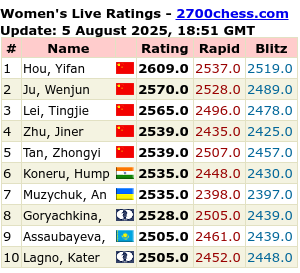Another Scotch..no, that's not to you, barman, but I managed to play another Scotch Opening in the tournament, and despite the same result as my first from two weeks ago, this is much closer. True, a loss on time, but I felt that I played well for most of the game.
Time-wise, I managed it much better, see-sawing with my opponent until the last moves when one over-long think allowed him to gain the advantage in time, and ultimately, the match....
Learning points:
I tend not to choose the simpler line if given an option.
Not always, but if I am in a situation where there are many possibilities, it seems I have not chosen the most straightforward, but think more and so drop behind on time. See move 9 as an example. Be2 was probably a better move, but f4 seemed to offer so much more !
This is not to say that I make a 'wrong' decision, but by taking too much time, it will have an effect later in the game, and generally not always positive !
As is probably normal, I do not go the extra distance, so miss the tactic that just might make a difference. See the comment on moves 21,22 and 23 where I had, effectively, the same chance each move and missed the opportunity.
A corollary to this, is to look for a check : it nearly always helps !
On to the game....
White, so 1.e4 is my usual choice, and with a good reply of e5 ( my limited statistics imply that the Sicilian is the likely response so far, so I expect that these days) I elect for standard moves that may lead to the Scotch.
At the moment, I prefer the Scotch to the complexity ( and indeed excessive theory ) of the Spanish ( Ruy Lopez ) opening.
Standard moves until 5...d6.
How to respond ? I stay with a usual response ( Nxc6 ) but on reflection Bb5 is probably a better move, with the threat of a check fork ( albeit remote :)
The first decision point is move 9.
[ Black has played 8...Ng4 ]
Why this move ? I think it is because he threatens Ne5 with an attempt to swap off my Bd3. Although I do consider Be2 as a good move, I decide that f4 is a more active and aggressive option.
I see his reply (d4) as an attempt to attack Nc3, which has retreat spaces available, so 9.f4 cuts off the Ng4 and is a strong central thrust !
However, I fail to see the effect of the check, 10...Bc5., so no options ( in colloquial English, "Hobson's choice" :).
Despite losing the exchange, there is good counter-play, and, at least materially, White is level after 14. dc.
The good point about this position...
...is that the pawns on c6 and f5 really cramp Black, so that his Bishop and Rook are not exactly effective.
I don't think I made the most of this advantage, although his Queen and Bishop combination was very flexible and so compensated for it quite a lot.
Threats ( 14...Re8 threatens mate or material gain, 15..Qf6 threatens to win a pawn ) but good defence until 17. Re1...
...maybe not the best choice, but the intention was to swap the rook and lessen the back rank threat.
Question: Are forcing moves ( Black had to play Rxe1 ) always the best to aim for ?
I was looking for opportunities to attack the Black Queen, but this didn't happen.
Next decision point : move 19.
[19...Qe4]
I didn't anticipate how strong Qe4 was, and took some time to find the reply, Ne2. If Qxb2, then Qe4 and I think Black is in difficulties, but Bc5 ( which I think is hard to find on the board ) probably evens things up.
Next decision point is 21.b4 ( attacking the Queen..an alternative was Bb4 ) and then 22.fg.
I think fg was the correct move, but I failed to work it through and so missed the check gf, which would have given me a stronger position. Around about this move, I dropped into time trouble :(
So, move 23. Bxe4.
It should have been 23.gf+ Kxg7 24.Bxd4, which would have left me with a small advantage and the likelihood of a draw in time trouble, but this was not to be.
The rest are bad moves caused by a lack of time ( less than a minute now versus 8 for Black ), so the result was inevitable.
None-the-less, a very enjoyable game, and a pleasure to chat afterwards about it with an opponent who turned out to be from Tel Aviv : such is the fun of the Internet.
Finally, more effort required on middle-game strategy and tactics, but also an extra effort in the opening, might see an easier middle-game ? Isn't that what we all aim for in opening study !
The complete game is below, comments welcome...
I add the the game Cukerman - Ruibal as it mirrors the position in my game through at move 9, where Bf4 is played instead of f4. This did, however, open as a Philidor, so an interesting possibility if one plays both...
/
16 February, 2010
ICC Monthly Tournament ( February 2010 ) Round 3 )
Posted by Signalman at 22:59
Labels: Scotch Game
Subscribe to:
Post Comments (Atom)


1 comments:
I thought 19 Qf1 was needed as Black was OK after 19 Ne2 Qxb2
Post a Comment